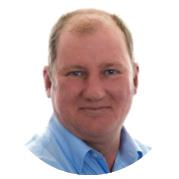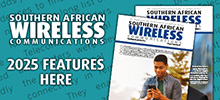12 October 2022

Who was your hero when you were growing up?
If it is OK, I would like to have two heroes. The first is the England all-round cricketer and legend, Lord Botham (Ian Botham). My family was a cricketing family and we all played, even my mum and siblings, so we spent a lot of time watching county and international cricket. In Test cricket, he scored 14 centuries, took five wickets in an innings 27 times, and 10 wickets in a match four times.
Ian Botham was and still is an inspiration with his energy, enthusiasm and commitment. But these qualities were not only displayed on the cricket pitch but were also reflected in Ian’s charity work – having undertaken 12 long distance charity walks and raised £12million.
My second hero is Nelson Mandela. I grew up in Uganda and Kenya and my father was a great champion of anti-apartheid, which was instilled in us as children. As I grew up and became more politically aware, I realised the enormous influence Nelson Mandela had in leading the transition from apartheid to a multiracial democracy in South Africa. While he has sadly passed away, he will always remain a major influence in my life.
What was your big career break?
When I was 18 and living in Kenya, I met Klaus Krone, a young German entrepreneur and industrialist who was running the family electrical switchgear business set up by his father. It was Klaus who gave me my first job at Krone but also paid for me to go to university back in the UK. In those days in Kenya, students would do O and A levels, but few would go to university. I worked for Krone for some 15 years and Klaus dispatched me to countries across the world to set up sales organisations and set up offices, including Nigeria, Hong Kong and Singapore as well as working in Germany and the UK. That opportunity changed the direction of my life.
If you had to work in a different industry, which one would you choose?
Twenty years ago I would not have an answer but today it would definitely be agriculture. I grew up on a coffee plantation and it transpires that farming is in my blood. But that’s not all. More recently I have become more aware of the growing challenges the world faces in feeding itself. According to Action Against Hunger, globally, one in nine people are hungry or undernourished. This is an appalling statistic and I genuinely believe that our work at Wyld – providing IoT sensor-to-satellite connectivity across the globe – will play a small part in how technology can help famers to increase yields, reduce waste grow more sustainably. With an incredible 30% of global water wastage due to agriculture – mainly due to over irrigation - using soil moisture sensors to manage irrigation, for example, can drastically reduce this figure.
What would you do with US$1m?
It is a question I have never had to consider but aside from supporting my family, I would love to help nurture and invest in innovative aggrotech start-ups looking to help find solutions to food poverty and increase sustainability. Technology has saved us more than once and by harnessing the vision and skills of young entrepreneurs, scientists and engineers, we can hopefully find a way through feeding the world.
Where would you live if money was no object?
I have lived all over the world in Africa, SE Asia, South America, mainland Europe, but my home now is in Wiltshire in the UK, ‘God’s own county’. While it has been a privilege to experience the people, culture and geography of so many places, for me now, home is where the family is, so I have no plans to go elsewhere, even if money was no object.
What’s the best piece of advice you’ve been given?
I have been given so much good and valuable advice by so many great people over the years, some of which I have accepted but other advice that I have ignored to my detriment. It is difficult to pick one piece, but I would have to go back to my father who told me when I was 18, I should leave Kenya and head back to the UK to further my education. As I’ve said, in Kenya we did O and A levels but few students went on to university. He gave me a passport and packed me off. It was daunting but with that encouragement and the help of my mentor Klaus Krone, it was the start of an exciting and rewarding career – and I am still reaping the benefits.
What’s the best technological advancement in your lifetime?
There are so many technological breakthroughs that have shaped our lives that it is difficult to pick just one but if pushed I would have to say mobile communications and the Internet. The idea that you can speak to someone in rural Uganda from Wiltshire on Facebook or WhatsApp is simply phenomenal and life changing. When I was studying in the UK, the only way to contact my parents was through an arranged call from a phone box or by writing. The only downside from mobile communications and social media is that the art of writing a letter is disappearing.
If you could dine with any famous person, past or present, who would you choose?
It has to again be Lord Ian Botham or Nelson Mandela, depending on the sort of evening I wanted. But having them both would make for fascinating dinner conversation. While both very different, they also have a lot in common, not least the single-minded commitment to getting the job done.
Ian’s epic eight-day charity walk across South Africa passed through Soweto, where Nelson Mandela grew up and Mandela was a great fan of cricket, from watching visiting sides from enclosures in the ground reserved for the non-Europeans in his youth to greeting visiting international cricket teams as president of South Africa.
Which law would you most like to change?
While not strictly speaking a law in itself, I would have no hesitation in changing the rules on income tax. I strongly believe that taxing people on their earnings is immoral. A better and more just approach is to shift the burden of raising necessary income to taxing expenditure. While you can’t do away with income tax completely, it’s time to change the balance. If you look at countries such as Singapore that adopt this approach with low-income tax, they have successful economies and arguably a fairer society.
What’s the one product you couldn’t live without?
My first thought was my smartphone, but then I lived quite happily without one for the first 30 years of my life. But I’m still drawn back to communication devices, whether it is a landline phone, mobile or smartphone. So, I guess it comes back today to a smartphone as the product I would struggle most to live without. I suspect that this applies to most people. But there is another product I would struggle to live without – a very British cup of tea!
Which historical event do you wish you had experienced in the flesh?
I was in Berlin when the wall came down in 1989, which marked the end of the Soviet Union, the end of the Cold War. Sadly, with the current backdrop of the Russian invasion of Ukraine, the world has gone back to a very dark time. I was also in Hong Kong when the sovereignty of Hong Kong was transferred from the UK to China - that’s also not worked out in the way it was envisioned. But my thoughts on a historical event I wish I had seen in the flesh in my lifetime would have been the release of Nelson Mandela from 27 years in prison, marking the end of apartheid in South Africa - no one can deny that event was a positive move for mankind.
What’s the one thing you would want to do before it’s too late?
I read a book when I was a child about a father and son who travelled from Cairo to Cape Town on motorbikes. The adventure has stayed with me for years and I still think about it. A friend of mine did the trip from UK to Cape Town on a bike a few years ago. My father is no longer with us - but maybe I could convince one or all of my children to take up the challenge with me and explore the continent, experience the different cultures and escape the daily rat race for a few months.






